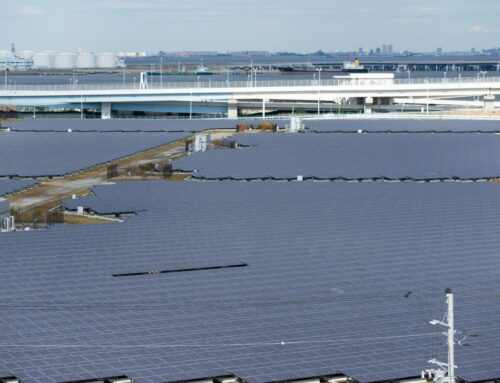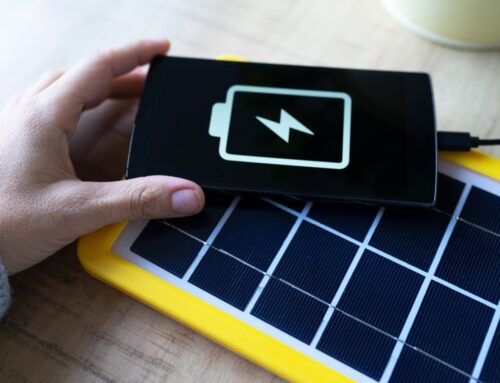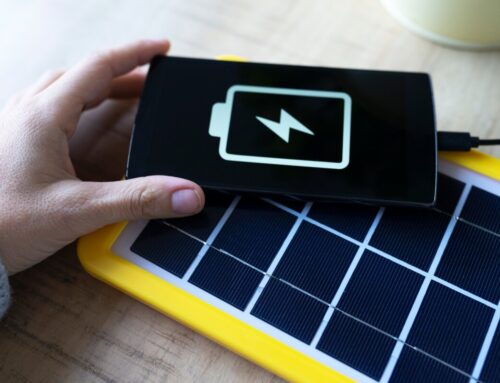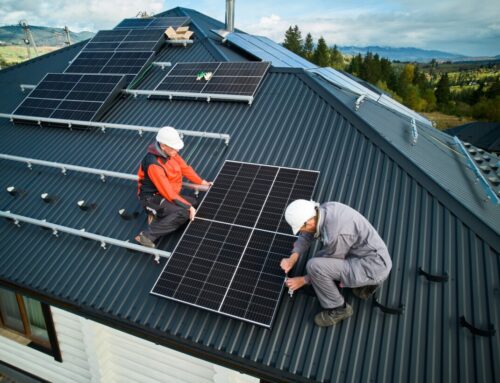Discover the Best solar panel kits for Home Installation
Best solar panel kits for home are gaining popularity in the United States as homeowners look for cleaner, more cost-effective ways to generate electricity. With rising utility bills, environmental concerns, and increasing energy demands, many households are turning to solar energy as a dependable alternative. Installing a solar panel kit not only reduces electricity costs but also increases property value and helps lower your carbon footprint.
Home solar panel kits come with the major components required to start generating solar energy, such as solar panels, inverters, mounting hardware, and sometimes batteries. These kits make it easier for homeowners to go solar without the need to purchase each component separately. In this article, we’ll explore everything you need to know about choosing the best solar panel kits for home use—including how they work, what to look for, and which kits offer the best value.
What Are Solar Panel Kits?
Solar panel kits are pre-packaged bundles that include all the essential components required to set up a residential solar energy system. They are designed for DIY installation or for use by a professional installer. A basic solar panel kit typically includes:
-
Solar panels (usually monocrystalline or polycrystalline)
-
Inverter (string or microinverter)
-
Mounting equipment
-
Charge controller (for off-grid systems)
-
Wiring and connectors
Some more advanced kits may also include solar batteries, monitoring systems, or hybrid inverters that allow you to use solar energy both on-grid and off-grid.
Solar panel kits are a great entry point for homeowners who are interested in transitioning to renewable energy. They simplify the buying process and reduce the risk of compatibility issues between components. Most kits are scalable, meaning they can be expanded as your energy needs grow.
Why Use Solar Panel Kits at Home?
There are several reasons why solar panel kits are ideal for home use. First, they offer convenience. Instead of having to research, compare, and purchase each component separately, a kit provides everything you need in one package. This makes planning and installation more straightforward, particularly for those new to solar energy.
Cost is another major advantage. Solar panel kits are often more affordable than custom-built systems because they bundle components at a reduced price. They also reduce labor and permitting costs, especially if you opt for a DIY installation.
Energy independence is another powerful reason to install solar panels at home. With the right system, you can significantly reduce or even eliminate your monthly electricity bills. In areas with frequent power outages or limited grid access, off-grid kits provide a reliable backup source of power.
Additionally, many federal, state, and local incentives exist to help reduce the cost of solar installation. Homeowners may be eligible for the federal solar investment tax credit (ITC), which can cover up to 30% of the installation cost. This further enhances the value proposition of investing in the best solar panel kits for home.
On-Grid vs Off-Grid Kits
Before purchasing a solar panel kit, it’s important to understand the difference between on-grid and off-grid systems.
On-grid kits are designed to work in tandem with your local utility grid. These systems allow you to use solar power when the sun is shining and draw electricity from the grid at night or during cloudy days. Any excess electricity generated by your solar panels can be sent back to the grid, often earning you credits through net metering. On-grid kits are ideal for homeowners in urban or suburban areas with reliable access to public utilities.
Off-grid kits, on the other hand, operate independently of the utility grid. These systems include solar batteries that store excess energy for use when the sun isn’t shining. Off-grid kits are typically used in rural or remote locations where access to the electric grid is limited or nonexistent. They provide complete energy autonomy but require a more substantial upfront investment due to the cost of storage batteries and more robust components.
There are also hybrid systems that combine the features of both, offering the flexibility to store energy while remaining connected to the grid for backup.

Curious about solar? Let us help you discover how solar energy can revolutionize your home and save you money. Request Your Free Solar Estimate at SOLAR ENERGY
What to Look for in the Best Solar Panel Kits for Home
When shopping for a solar panel kit, there are several critical features to evaluate. Understanding these factors can help you choose a system that suits your home’s energy needs, budget, and installation preferences.
1. Power Output:
Measured in watts (W), power output indicates how much electricity the kit can generate. For home use, most kits range from 1 kW (1000W) to 10 kW (10,000W). Your household’s average electricity consumption should guide this decision. A typical American home uses about 877 kWh per month, which would require a 6 to 8 kW system to offset most or all usage.
2. Panel Type:
Most residential kits use monocrystalline or polycrystalline solar panels. Monocrystalline panels are more efficient and compact but tend to be more expensive. Polycrystalline panels are more affordable but slightly less efficient. Both types are viable options depending on your roof space and budget.
3. Inverter Quality:
Inverters convert the DC electricity produced by solar panels into AC electricity used by your home. High-quality inverters are critical for maximizing energy efficiency. Some kits include microinverters for each panel, which help optimize output even if one panel is shaded.
4. Expandability:
If you expect your energy needs to grow over time—due to EVs, home expansions, or increased usage—select a system that allows for future expansion. Some kits are modular and designed for easy scaling.
5. Warranty and Support:
Look for kits that come with a solid manufacturer’s warranty—ideally 25 years on solar panels and 5–10 years on inverters and other components. Also, verify if the brand offers U.S.-based customer support and technical guidance.
6. Certification:
Ensure the components meet safety and efficiency standards such as UL, IEC, and NABCEP certifications. This is especially important if you’re applying for tax credits or utility rebates.
Top Residential Solar Panel Kits
Let’s now examine some of the best solar panel kits for home currently available. These kits are favored by homeowners for their efficiency, value, and ease of installation.
Renogy 6kW Solar Panel Kit
Renogy is one of the most trusted names in residential solar, offering kits for both on-grid and off-grid use. The 6kW system is designed to generate around 24–30 kWh per day under ideal sunlight conditions, making it suitable for medium-to-large homes. The kit includes 16 monocrystalline panels, a hybrid inverter, charge controller, mounting brackets, and cables. It supports both grid connection and battery storage, giving homeowners flexibility.
Eco-Worthy 5kW Off-Grid Solar Kit
This all-in-one off-grid solution is designed for homes in remote locations. It includes 20 solar panels, a 5kW inverter, and a 48V battery bank system with lithium batteries. The kit can supply enough power for small appliances, lights, fans, and even some major household devices. Eco-Worthy’s system is expandable, and the batteries include built-in management systems for safety and efficiency.
Grape Solar 4kW Grid-Tied Kit
Grape Solar’s grid-tied kit includes 14 polycrystalline panels, a SolarEdge inverter, and a complete mounting system. Designed for rooftops, this kit is suitable for homes that use about 600 to 800 kWh per month. It’s UL-listed, comes with a 10-year warranty on the inverter, and a 25-year warranty on the panels. It’s particularly good for homeowners who want to reduce utility bills without going completely off-grid.
Table: Feature Comparison
| Kit Name | Power Output | Type | Battery Included | Panel Type | Ideal For |
|---|---|---|---|---|---|
| Renogy 6kW Kit | 6,000W | Hybrid | Optional | Monocrystalline | Medium to large homes |
| Eco-Worthy 5kW Kit | 5,000W | Off-grid | Yes | Monocrystalline | Remote or rural homes |
| Grape Solar 4kW Kit | 4,000W | On-grid | No | Polycrystalline | Urban grid-tied systems |
Installation Tips
Although many solar panel kits are designed for DIY installation, it’s important to assess your own comfort level and technical ability before attempting it. Installing solar panels involves working at heights, connecting electrical systems, and following building codes. If in doubt, it’s wise to hire a licensed electrician or solar contractor.
Begin by evaluating your roof’s orientation and tilt. South-facing roofs are ideal for solar exposure in the United States. Make sure the roof is in good condition and free from shading caused by trees or other structures.
You’ll also need to check local permitting requirements. Some municipalities require inspections and permits for solar installations. Working with a certified installer or contacting your city’s permitting office can help ensure your system meets all regulations.
FAQs
How many solar panels do I need for my house?
The number depends on your energy usage. A typical home using 900 kWh per month might need a 6 kW system, which could require around 16 to 20 panels.
Are solar panel kits worth it?
Yes, especially with available tax credits and long-term energy savings. Over time, most homeowners recover their investment within 5–8 years.
Can I install solar kits myself?
Some kits are designed for DIY installation, but electrical connections and permitting can be complex. Hiring a professional is recommended for safety and compliance.
Do I need batteries for my solar panel system?
Batteries are required for off-grid systems but are optional for grid-tied setups. Adding batteries offers backup power during outages.
Will solar panels work on cloudy days?
Yes, though efficiency is reduced. Solar panels can still generate electricity during overcast weather, just not at full capacity.
Conclusion
Best solar panel kits for home are a smart investment for anyone seeking energy independence, long-term savings, and environmental responsibility. Whether you live in the city or a remote area, there’s a solar kit tailored to your needs. With the right components, proper installation, and a bit of planning, you can harness the sun’s energy to power your home efficiently and sustainably.
Don’t wait to go solar! Thousands of homeowners are saving—join them and start reaping the benefits.
Book Your Free Consultation at SOLAR ENERGY
Explore additional solar solutions at NEW SOLAR QUOTES and discover how it can benefit your home!









